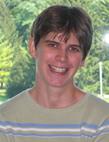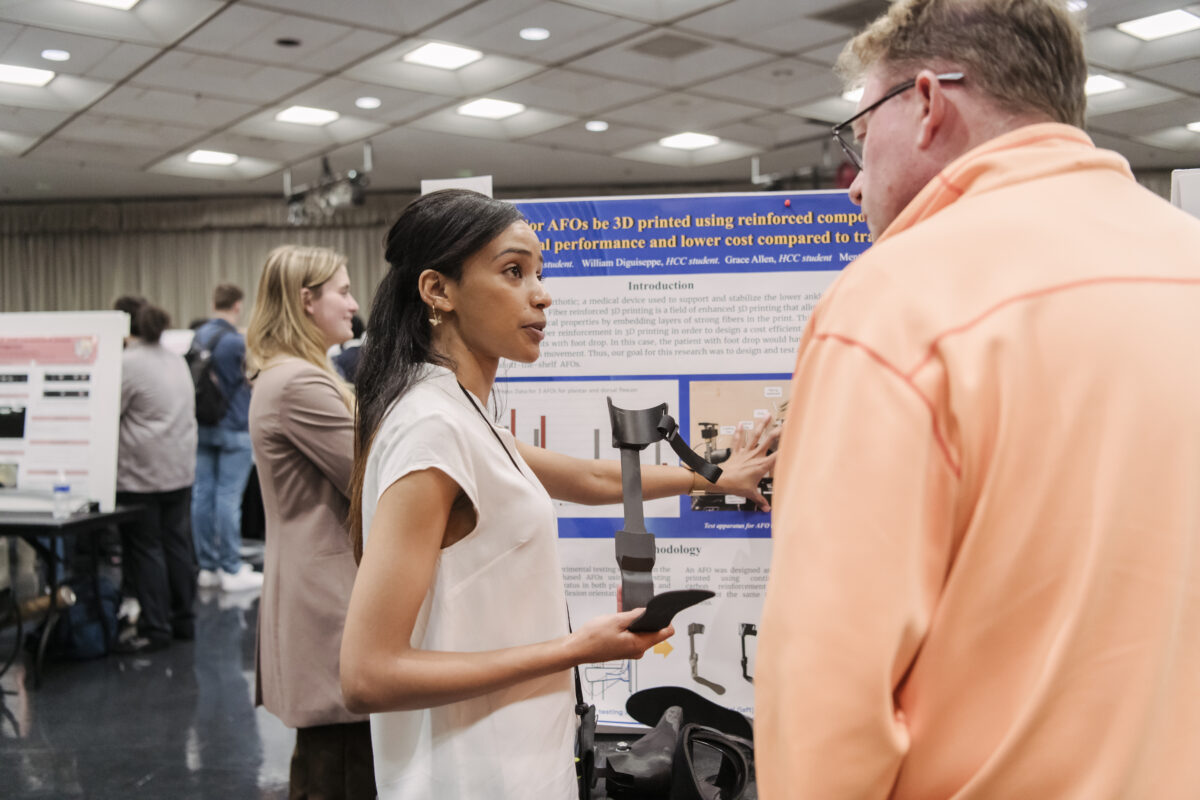 Several UMBC biological sciences faculty and staff were featured in a Nature article on July 15 about the benefits of active learning in science courses. Neuroscientist Sarah Leupen was quoted in the story and described a question that spurs interesting discussion in her introductory physiology class: You’re innocently walking down the street when aliens zap away the sensory neurons in your legs. What happens?
Several UMBC biological sciences faculty and staff were featured in a Nature article on July 15 about the benefits of active learning in science courses. Neuroscientist Sarah Leupen was quoted in the story and described a question that spurs interesting discussion in her introductory physiology class: You’re innocently walking down the street when aliens zap away the sensory neurons in your legs. What happens?
“We usually get lots of vigorous debate on this one,” said Leupen, who spends most of her class time firing such questions at her students. “It’s lovely to experience.” Leupen said the students grapple with the material they learn by discussing the options in teams. And if a team gets a question wrong, she says, “that’s usually a good thing — because then they really remember it.”
 Jeff Leips, a professor of biological sciences, is also quoted in the article and said it requires compromise to get past simply communicating factual knowledge covered in a course. “You have to accept that you can’t cover everything to the same level,” he said.
Jeff Leips, a professor of biological sciences, is also quoted in the article and said it requires compromise to get past simply communicating factual knowledge covered in a course. “You have to accept that you can’t cover everything to the same level,” he said.
Linda Hodges, a biochemist and head of the Faculty Development Center at UMBC, is the author of a forthcoming book on overcoming obstacles to education reform. She noted that for many scientists, active learning can be at odds with their beliefs about teaching content and the factual knowledge covered in a given course.
Read “Why we are teaching science wrong, and how to make it right,” in Nature.



